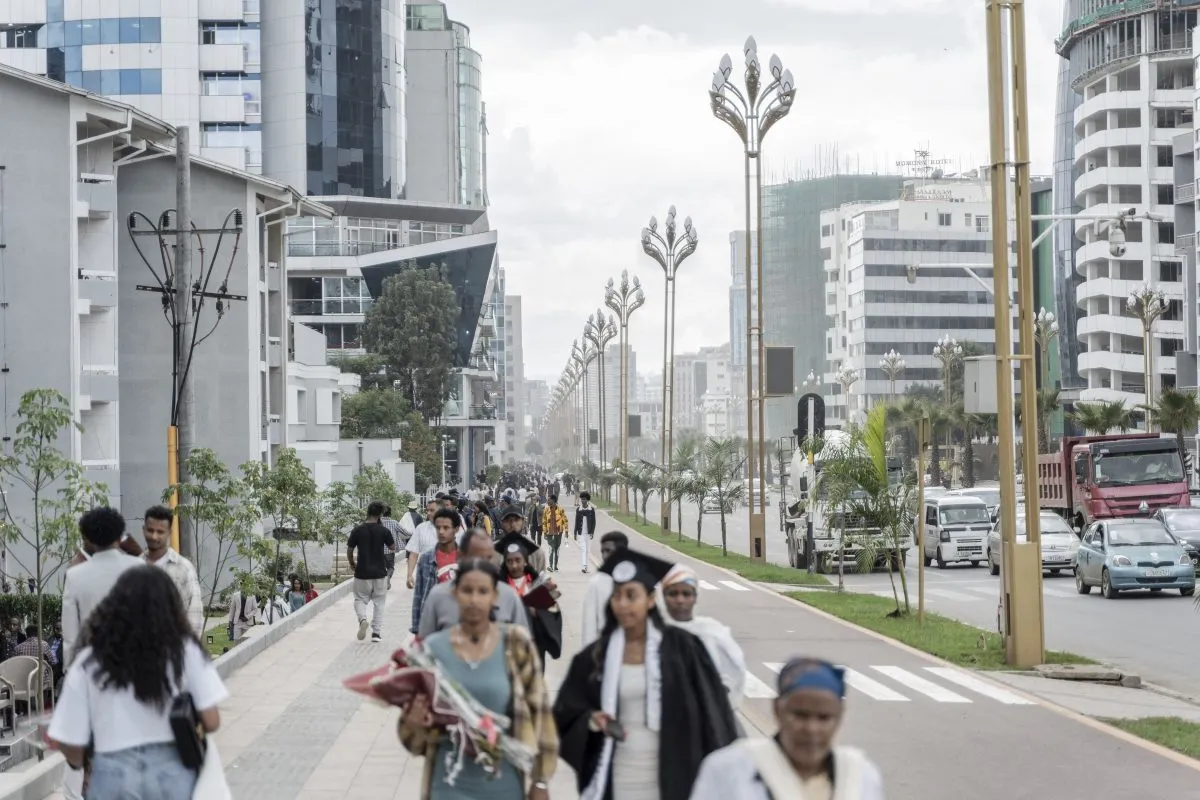Africa’s youth dividend, with over 60% of the population under 25, presents a significant opportunity for transformative change. This vibrant demographic could either drive substantial economic growth or contribute to serious social unrest. The recent surge in youth demonstrations across various countries highlights the critical need to address youth unemployment.
While Africa’s economies are generally on an upward trajectory, traditional sectors like agriculture and manufacturing are grappling with numerous challenges. Conversely, technology, which is at the heart of the digital economy, is emerging as a powerful catalyst for job creation. African leaders must seize this moment to prevent economic stagnation and fully leverage the potential of their young population.
There is a pressing need for Africa’s leaders to focus on digital economy as a key driver of job creation, leveraging the tech-savvy expertise of the continent’s young population. While digital technologies and AI will undoubtedly disrupt traditional employment by improving efficiency and productivity, they also offer unparalleled opportunities for generating high-quality jobs. Contrary to fears that digitisation and AI will lead to widespread job losses, the fourth industrial revolution – like those before it – promises a significant expansion of work in emerging and less traditional areas.
The wealth gap between Africa and industrialized nations is widening, and this will only accelerate if the continent does not grasp the opportunities presented by AI and other digital technologies. These technologies can help Africa’s leaders to make better informed decisions, allocate resources more efficiently and create new economic opportunities. The Artificial Intelligence for Development Programme (AI4D) estimates that AI could boost Africa’s GDP by up to $2.9 trillion by 2030. If Africa fails to capitalize on this, the continent risks falling further behind in the global economy.
Traditional job market
Traditional areas of employment, such as agriculture and manufacturing, can be made more efficient by technology. For example, precision agriculture, powered by AI, can increase productivity while creating new specialised roles such as precision agriculture technicians. Similarly, in manufacturing, AI can optimise processes, leading to more efficient production and the creation of jobs in development and maintenance of AI-driven systems.
In other sectors such as healthcare, finance, education, retail customer service and logistics, AI can create both entry level jobs such as data labelling and specialised roles like AI healthcare trainers and fintech developers. These roles will be essential in transitioning Africa’s youthful employment from traditional, often low-skilled jobs to newer, technology-driven employment.
Expanding the digital economy
The digital economy holds enormous potential for job creation in areas such as data science, AI and machine learning engineering, cloud computing and cybersecurity. Africa’s growing internet connectivity, coupled with increasing levels of digital skills among the youth, provides a strong foundation for this expansion.
For skilled graduates, there are employment opportunities with major digital platforms and organizations as well as numerous startups across the continent. Africa’s startup ecosystem has seen remarkable growth, with $4.5bn in venture capital investments in 2023, particularly in fintech. Such growth has also raised demand for AI engineers and data scientists. The informal ‘gig’ economy also offers flexible opportunities for young people with digital skills and access to digital tools.
Additionally, governments should focus on creating policies that enable Business Process Outsourcing companies to establish operations in Africa, tapping into the global demand for digital services and unlocking opportunities for the local workforce. With the right policies, African countries can become hubs for digital services, providing employment for millions of people.
While AI and technology will undoubtedly render certain routine jobs in areas such as data management, programming, and some creative fields obsolete, human-driven roles will still be essential to manage these technologies. These include providing data, monitoring and interpreting AI outputs, and ensuring cybersecurity. Moreover, soft skills –such as communication, creativity, emotional intelligence, problem-solving, people management, and sound ethical judgement– will become increasingly important in guiding and complementing AI-driven processes.
What government needs to do
While digital technologies drive growth and create jobs, Africa’s leaders need to support targeted, effective digital training skills programmes and invest in education to ensure young people are well positioned for the job market. The IFC estimates that there will be 230 million ‘digital jobs’ in Sub Saharan Africa by 2030 that will require some level of digital skills.
In addition, governments need to work closely with the private sector to ensure a smooth transition and sustainability of digital initiatives. This includes providing support for entrepreneurs and innovation hubs.
Governments also need to ensure policy and regulatory reforms are urgently done to widen the availability and increase usage of digital technologies while fostering innovation. They should look at updating labour laws, investing in robust digital infrastructure and ensuring equal access to digital opportunities.
The case for government as an enabler of digital transformation should be considered alongside that of government as a user and client of AI. Governments can generate significant demand for AI solutions by applying them to perennial challenges such as national vaccine distribution and food security. This creates jobs that support local tech ecosystems and improves public service delivery.
New technologies including AI offer immense opportunities for African governments to harness the potential of the rapidly growing youth population. To transform these opportunities into tangible job creation and drive economic progress, leaders must focus on building the right infrastructure, fostering partnerships, investing in education and skills training, and enacting supportive regulations.
Want to continue reading? Subscribe today.
You've read all your free articles for this month! Subscribe now to enjoy full access to our content.
Digital Monthly
£8.00 / month
Receive full unlimited access to our articles, opinions, podcasts and more.
Digital Yearly
£70.00 / year
Our best value offer - save £26 and gain access to all of our digital content for an entire year!

 Sign in with Google
Sign in with Google 



